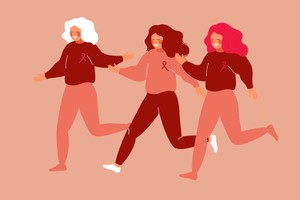Having a sex life is a mixed bag. On one hand, it opens us up to different kinds of pleasure, like masturbation and partnered sex. But, on the other hand, it can be a gateway to some very unpleasant things, such as sexually transmitted diseases (STDs) and unplanned pregnancies.
But like many things in life, sex is also about choices, and at the end of the day, it’s your choice how you decide to live as a sexual being. If you have an active sex life and want to be responsible about your well-being, you need to be well-informed. Below is a comprehensive list of issues and services you need to be aware of and have access to.
Sexual and reproductive health counseling
Awareness is the first step towards any change. That’s why finding empathic, qualified counselors is crucial. From sexual pleasure and orientation to dysfunction and abuse, counselors can provide accurate and up-to-date information. Something we need for a healthy sex life.
A good counselor can update you on your health status, inform you about the necessary actions to take, and teach skills needed to adopt healthy practices. Most importantly, they acknowledge each individual’s feelings, attitudes, and values as these ideas have a strong influence on how you behave.
Condom distribution
Given the fact that condoms are the only way to prevent sexually transmitted diseases and infections, you deserve easy access to them for safe sex life. Many clinics have condom distribution programs, which help with increasing condom availability, accessibility, and acceptability and reducing the risks posed by unprotected sex.
Ideally, condoms should be distributed free of charge on a wide scale, both at the individual and community level. And social marketing campaigns should inform people about their benefits and normalise their use.
Contraceptives
While condoms are very popular and they do provide extra protection, there are many more options for safe sex life. For example birth control patch, pills, injections and rings. Inform yourself about all the different ways you can be protected from unwanted pregnancy, how all these methods work, and where you can find them.
In addition to regular birth control methods, you should also look for emergency options like the morning-after pill and intrauterine devices and make sure you can access them if needed.
Pregnancy testing
There might be a time when you need to confirm a pregnancy; in such a scenario, you should be aware of the information and essential services you might need.
“What kind of tests are there?” (blood and urine), “How do they work?” and “What do the results mean?” are some of the crucial questions that need to be asked in a safe, judgement-free environment. Plus, you should look for a facility where you can take the test quickly and easily – either at home or at a clinic.
Safe abortion care
If you are pregnant and don’t want to continue with the pregnancy, you should be aware of the safe abortion options and how to access them. Look for trustworthy sources for information about the process; types of abortions (with pills or surgically); and care needed before and after the procedure, such as antibiotics, to prevent infections, and contraceptives. And most importantly, find out where you can have an abortion.
Our friends at How To Use Abortion Pill (HTU) – an online community of professionals helping with access to safe abortion options – are a great resource for this. With informational material available in 25 languages, details about national abortion laws for dozens of countries, and abortion-support chatbot Ally providing country-specific guidance 24/7, HTU makes the experience of having an abortion as smooth as possible.
Their weekly blogs cover abortion news and stories from around the world and; you can follow them on social media – Facebook, Twitter and Instagram – to stay informed about abortion updates.
Infection testing
If left untreated, sexually transmitted infections (STIs) and STDs can cause serious health issues, such as infertility, cancer, and organ damage. That’s why prompt treatment of these infections is important for healthy sex life.
Many STIs have no or nonspecific symptoms, which makes it hard to detect them. Additionally, people are discouraged to get tested because of the stigma around these infections. But testing is the only way to confirm if you have STIs. You should be well-informed; know what tests to take and where to take them, and know what to do if you test positive.
Voluntary counseling and testing for HIV
The human immunodeficiency virus, commonly known as HIV, is a virus that attacks cells that help the body fight infection, making a person more vulnerable to other infections and diseases. It is spread by contact with certain bodily fluids of a person with HIV, most commonly during unprotected sex.
To help people with HIV live a healthy life and prevent its spread, it is important to detect it as soon as possible and start treatment. And HIV testing and counselling helps do that, so you should visit a doctor voluntarily and get tested.
Gynecology services
People with female reproductive systems need special care from puberty until menopause. This includes, but is not limited to, issues with menstrual cycles, vaginal infections, abdominal pain, and changes in the uterus.
To make sure everything is healthy and working well, preventive check-ups and screenings are necessary. Additionally, pregnancy care, birth control, contraception counseling, and vaccinations are all essential for a healthy female body.
Maternal care
During pregnancy, childbirth, and the postpartum period (period after childbirth) we may need services such as prenatal care – screening, diagnosing, and managing risk factors that might affect the pregnancy; delivery care – support during labour; and postnatal care – supporting the health of mother and child after the delivery. Altogether, this is called maternal care.
These services are crucial as they are a matter of life and death. And should be easily accessible to everyone who needs them.
Support against violence
Sexual and gender-based violence is any act that is perpetrated against a person’s will and is based on gender norms and unequal power relationships. Encompassing threats of violence and coercion, it can be physical, emotional, psychological, or sexual in nature.
It is important that you know what this kind of violence is and all the possible forms it can take. And how you should respond in such a situation, and what help is available to you if needed.
Do you have something to share? Leave your comments below, contact us on our social media platforms: Facebook, Instagram and Twitter, or send us an e-mail to info@findmymethod.org. For more information on contraception, visit findmymethod.org
About the author: Farah Khan is a research and communications expert. She is interested in well-being at various levels – personal, local, and planetary.





